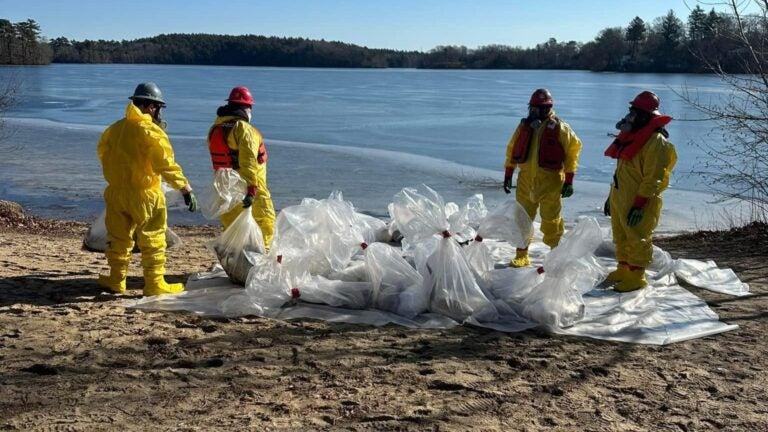
PLYMOUTH (Massachusetts, US), Jan 21 (NNN-AGENCIES) — The Billington Sea in Plymouth is a large reservoir that is typically known for its waterfowl. Only this weekend, the water was surrounded with dozens of dead birds believed to have contracted the avian flu that is sweeping the US.
“We could see that there were deceased Canada geese, ducks, a few other species,” said Zak Mertz, CEO of New England Wildlife Center. “It is strongly suspected that this mortality event is linked to avian influenza H5N1.”
In total there were 60 dead birds, with 10 to 15 more sick out on the water. Many of the ill birds had to be euthanized. The contagious illness has been attacking bird populations across the country, and at times aiding in the heightened price of eggs.
“About this time in January, we do tend to see a spike as birds migrate through,” said Mertz. “It can be contagious to wild birds, domestic poultry, and waterfowl. It generally spreads through respiratory secretion or droplets moving from one bird to another. It can also spread through feces.”
Mertz’s team worked alongside multiple agencies in Plymouth to try to treat the birds.
“Our main objective was get some samples on these birds, to do some testing, and also to remove any of the deceased birds from the environment to stop the spread,” said Mertz. “Now we are thankful the risk to humans and pets is very low, but low risk is not no risk.”
The hardest part in containing the spread is that some birds show no signs, while others do.
“They can be lethargic, neurologic, ataxic falling over or barrel rolling. A lot of waterfowl can carry the disease and not look sick at all,” describes Mertz.
It’s why no one should handle a dead bird, and pet owners are also encouraged to leash their animals if birds are congregating nearby.
The Plymouth Department of Health and Human Services warned community members following the outbreak.
According to the warning, if anyone encounters any bird or animal on the ice they should not attempt to rescue it.
All backyard poultry must be corralled for the foreseeable future. Birds can not be allowed to roam free range, health officials said. Other pets, such as dogs, should be leashed while outside if there are birds nearby.
In addition, anyone who has poultry should use protective gear while handling the birds, feeding them, or cleaning up after them. People should also wash their hands with soap and warm water after handling birds.
“Poultry owners should keep their birds away from wild waterfowl, limit the number of people that have access to your flock, and if you share equipment with other bird owners, clean and disinfect between locations,” Plymouth public health director Karen Keane said. — NNN-AGENCIES




